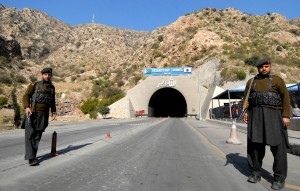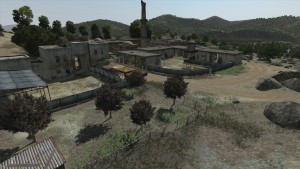FATA is a nucleus of the “region between Oxus and Jumna (that) has been the theater of decisive events in mankind’s history.” (Arnold J. Toynbee)
The region lying across the North Western frontier of Pakistan which, to say, is a part of Pakistan, but does not enjoy the status of a federal unit in the federation of Pakistan. FATA, which is known as or rather projected as the ‘hub of terrorism’ in Pakistan is perhaps the least developed and the most ignored region of Pakistan—hence, most troubled as well. Level of socio-political and economic development here as compared to other regions of Pakistan is extremely low and poverty rampant. This is ironical. Because FATA is arguably considered to be one of the central geo-political landscapes of South-Western Asia linking Afghanistan, Central Asia and Eurasia, but has largely remained politically isolated from the rest of Pakistan, least integrated into the national polity and socio-politically least developed as well.
Projection of FATA in both the national and International media as the ‘hub of terrorists’ in Pakistan may not be wrong or an exaggeration as such; however, answer to the question—why has FATA become the heaven for the terrorist networks in Pakistan?—-cannot be fully answered without taking into account the extremely low indicators of societal development.
It is unfortunate that even after 65 years of Pakistan’s independence, this area has not become a ‘part’ of Pakistan. The laws of the country do not apply to this region as they do in the rest of country, and thus it has not been able to join the main stream. The administrative system is different from the rest of the country and is being ruled under Frontier Crimes Regulations enacted by the British colonial government in 1872, revised and amended in 1887, 1901 and now in 2011. We can assess the state of its role and participation in national politics by the fact that political parties were banned in FATA until recently when Political Parties Act of 2002 was extended to it in August 2011. Without political parties, it is rather difficult to have real participatory political culture especially when individuals cannot afford to contest and win elections without the support of political parties, and even if they win, they remain insignificant in Parliamentary politics.
 Similar is the condition of FATA’s socio-economic development. According to a WHO report, nearly 50 percent of tribesmen live in abject poverty, 75 percent have no access to clean drinking water. The population growth rate is almost 4 percent as compared to nationally cited figures of 2 percent. The literacy rate is 17 percent as against the national average of 56 percent, while female literacy rate is less than 1 percent. FATA has a large number of small schools but very few students. Some schools accommodate as few as 65 students and most with an average of between one and three teachers. With 7 percent of national population, FATA receives only 1 percent of total national budget. No wonder that the region had the country’s highest emigration ratio even before the advent of terrorist outfits which, along with army operations, have further displaced tens of thousands of people. Similarly, in health sector, one doctor is available for 7670 persons as against the national average of 1226, and one health factory for every 50 square kilometers of area serving a large population which, in the porous border regions, also includes those who reside on the Afghan side of Durand Line.
Similar is the condition of FATA’s socio-economic development. According to a WHO report, nearly 50 percent of tribesmen live in abject poverty, 75 percent have no access to clean drinking water. The population growth rate is almost 4 percent as compared to nationally cited figures of 2 percent. The literacy rate is 17 percent as against the national average of 56 percent, while female literacy rate is less than 1 percent. FATA has a large number of small schools but very few students. Some schools accommodate as few as 65 students and most with an average of between one and three teachers. With 7 percent of national population, FATA receives only 1 percent of total national budget. No wonder that the region had the country’s highest emigration ratio even before the advent of terrorist outfits which, along with army operations, have further displaced tens of thousands of people. Similarly, in health sector, one doctor is available for 7670 persons as against the national average of 1226, and one health factory for every 50 square kilometers of area serving a large population which, in the porous border regions, also includes those who reside on the Afghan side of Durand Line.
The strife that keeps FATA simmering has various dimensions but its roots lie in the government’s hands-off policy towards the tribal areas. Traditionally, the interest of decision makers has been limited to maintaining the status quo in the volatile tribal agencies. Short-sighted and piecemeal development plans, benefiting select tribal elites rather than the common man, have prevented the integration of FATA into the national mainstream. Decision makers can, however, no longer afford to remain indifferent to the development of the area. An integrated and sustainable development strategy is badly needed to put FATA on the path to peace and prosperity along with the rest of the country. Pakistan’s government must repeal the Frontier Crimes Regulations, incorporate the region into the provincial and national justice system, and replace tribal militias with the national police. Only such steps can prevent FATA from falling into the hands of terrorist outfits, and give the people a hope to have a better future, without having to migrate to other parts of the country or to other countries.






















